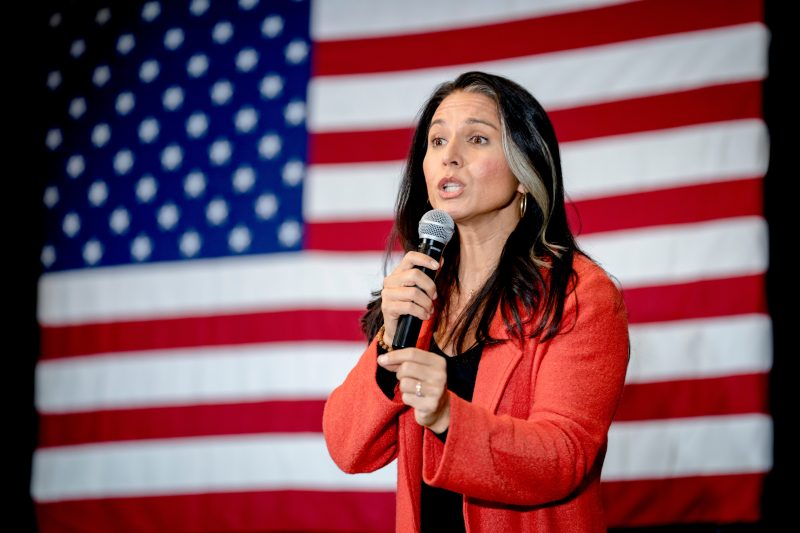The ongoing debate around U.S. defense policies has taken an interesting turn with reports of President Donald Trump engaging in discussions with Representative Tulsi Gabbard, emphasizing an unexpected convergence in their views on a more isolationist approach to national security. This unexpected alliance is significant, considering Gabbard’s status as a prominent Democrat, while Trump is a Republican president known for his assertive foreign policy stance. Although the details of their conversation remain undisclosed, this development calls for a critical examination of the potential effects of an isolationist approach on U.S. defense and global geopolitical dynamics.
Isolationism, broadly defined, refers to a state’s decision to minimize its involvement in global affairs and prioritize its own national interests over international obligations. Historically, isolationism gained prominence in the United States following World War I, with President Woodrow Wilson’s vision of global cooperation giving way to a more inward-looking approach. This shift marked a significant departure from the U.S.’s role as a global superpower and had repercussions on the international stage.
The recent inclination towards isolationism, evident in Trump’s presidency and his discussions with Gabbard, raises concerns about the future of U.S. defense policy. Advocates argue that shifting towards a more isolationist stance could allow for a reevaluation of the country’s defense budget, enabling resources to be redirected towards domestic priorities such as healthcare and education. Moreover, proponents claim that by withdrawing from certain international military engagements, the U.S. can avoid costly and protracted conflicts, thereby reducing the burden on American soldiers and taxpayers alike.
Critics, however, caution that an isolationist approach may result in the U.S. relinquishing its position as a global leader, thereby undermining its influence in shaping international norms. Furthermore, they argue that withdrawing from global military engagements and alliances could weaken U.S. national security, as it may limit the country’s ability to respond effectively to emerging threats. This approach may also create a power vacuum, thereby potentially destabilizing regions where the U.S. has historically played a role in maintaining peace and stability.
For decades, the U.S. has been a proponent of international cooperation, leading initiatives like NATO and the United Nations. Its involvement in various conflicts, such as the Iraqi invasion and the war on terror, has aimed to uphold global security and protect American interests. However, critics argue that these engagements have strained the U.S. military and economy, eroding public trust in government interventions abroad. Trump’s call for a more isolationist approach may appeal to a segment of the American population disillusioned with extensive military interventions and their associated costs.
It is crucial to recognize that a complete abandonment of international responsibilities may not be feasible in today’s interconnected world. Global challenges such as terrorism, climate change, and pandemics demand collective action and cooperation among nations. Striking a balance between domestic priorities and international commitments is a complex task that requires careful consideration of both short-term and long-term consequences.
As the debate on isolationism versus internationalism evolves, it is essential for policymakers to critically evaluate the potential impact on U.S. defense and global stability. Discussions like the one between Trump and Gabbard highlight the growing desire for change and reevaluation of the country’s defense policies. However, the consequences of an isolationist approach must be carefully considered, ensuring that America’s national interests are protected while continuing to contribute to global stability and security.
In conclusion, the reported discussions between President Trump and Representative Gabbard regarding a more isolationist approach to U.S. defense raise important questions about the future of American foreign policy. While the pursuit of domestic priorities and a reduction in costly military engagements may appeal to certain segments of society, it is crucial to consider the potential consequences on national security and global dynamics. Striking a balance between domestic concerns and international commitments is essential in navigating the ever-changing landscape of global affairs.
